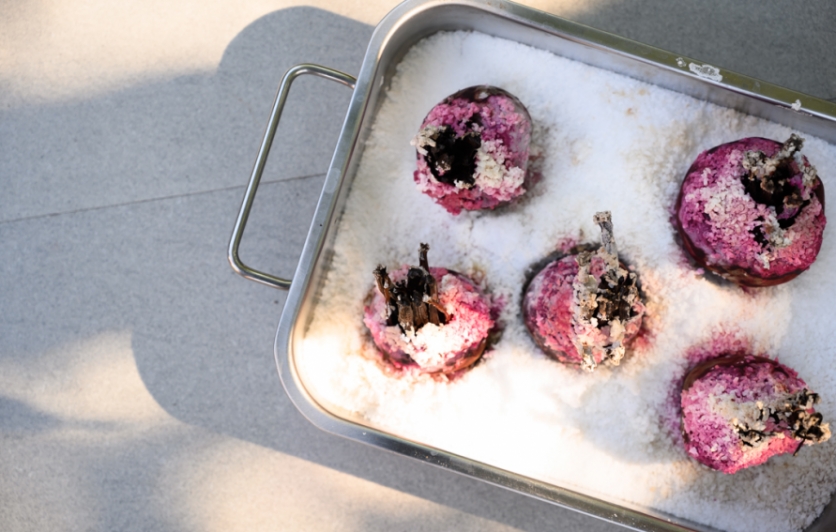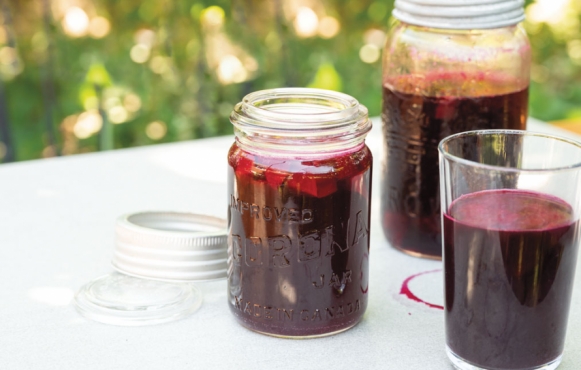
From salt-roasting beets to kvass, sodium brings out the best in sweet and earthy beets.
Sweet dirt. That's how I described the taste of beets when I was young. Pulled fresh from my grandparent's garden, we'd eat beets one way — boiled — never raw or roasted and never the greens. Just boiled with a touch of salt. Maybe my family pickled them and I couldn't see past the canned peaches and cherries in the larder to notice. I'm not sure why we grew them, if we didn't really appreciate their versatility. And we certainly didn't know the impact they'd make as the secret ingredient in the best chocolate cake I've ever eaten.
Today, we primarily eat the earthy taproot, although when beets were cultivated in the ancient Middle East, they were grown mostly for their greens, which, like many vegetable leaves, are edible.
Most beets are dark red in colour and a little bit larger than a golf ball. But take a trip to the farmers' market to discover heirloom varieties in shades of gold, white and candy-cane stripped Chioggia.
No matter the colour or size, beets can be prepared in many different ways. They can be served raw, cubed into a salad or shredded for slaw. Beets can be boiled, steamed, baked, saltroasted, pickled, fried into chips or juiced for a smoothie or beet wine. The red colour or betanin derived from beets is actually used industrially to give processed food (and even wine in some cases) an amplified red colouring.
As an edible taproot, beets are made up mostly of water (about 88 per cent) and are a good source of fibre, potassium, vitamin C, folate, manganese and iron. Beets also have strong antiinflammatory and detoxifying properties. The greens, while having very similar nutrients are also very high in vitamins A and K and beta-carotene. Beets are one of the few naturally occurring sources of adipic acid, which can be used as a gelling and souring agent. In nylon production, adipic acid is chemically produced to act as a monomer, which helps bind nylon fibres.
While beets are versatile and nutritious, their sweet earthy flavour isn't for everyone. Beyond boiled beets, the following recipes use salt to bring out the best in the root vegetable, especially when used as the moist-maker in that decadent cake I mentioned.







